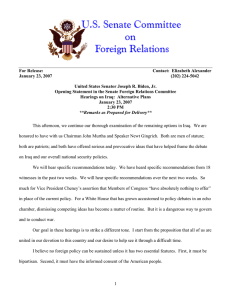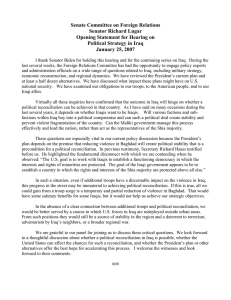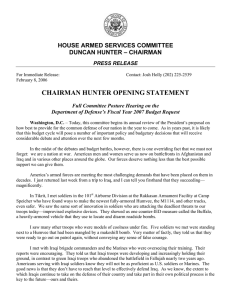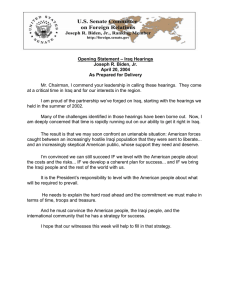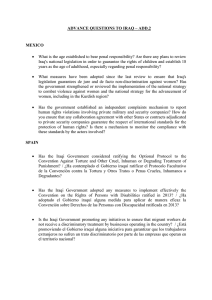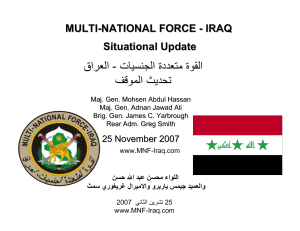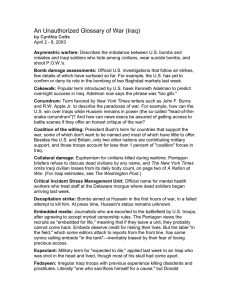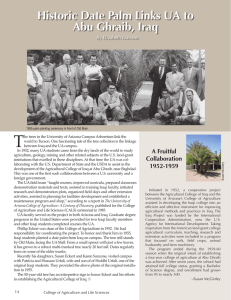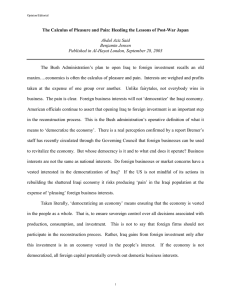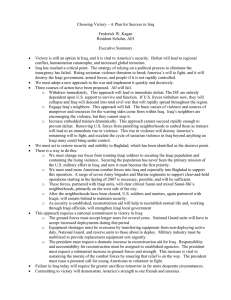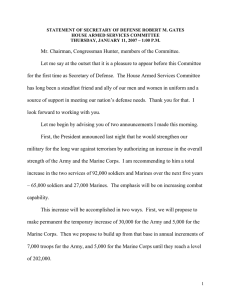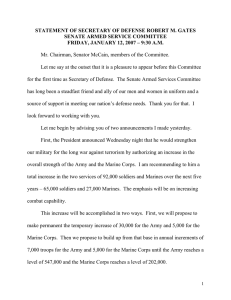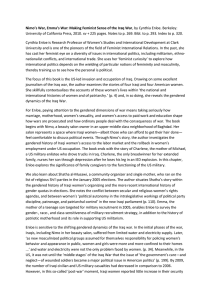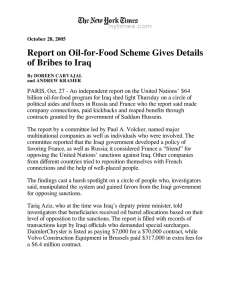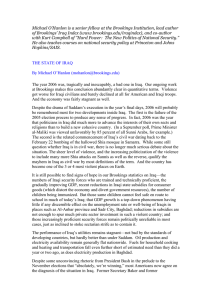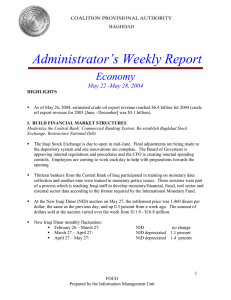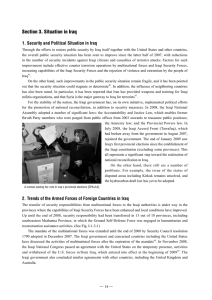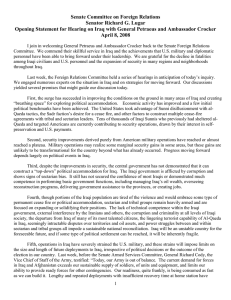For Release: Contact: Elizabeth Alexander January 23, 2007
advertisement
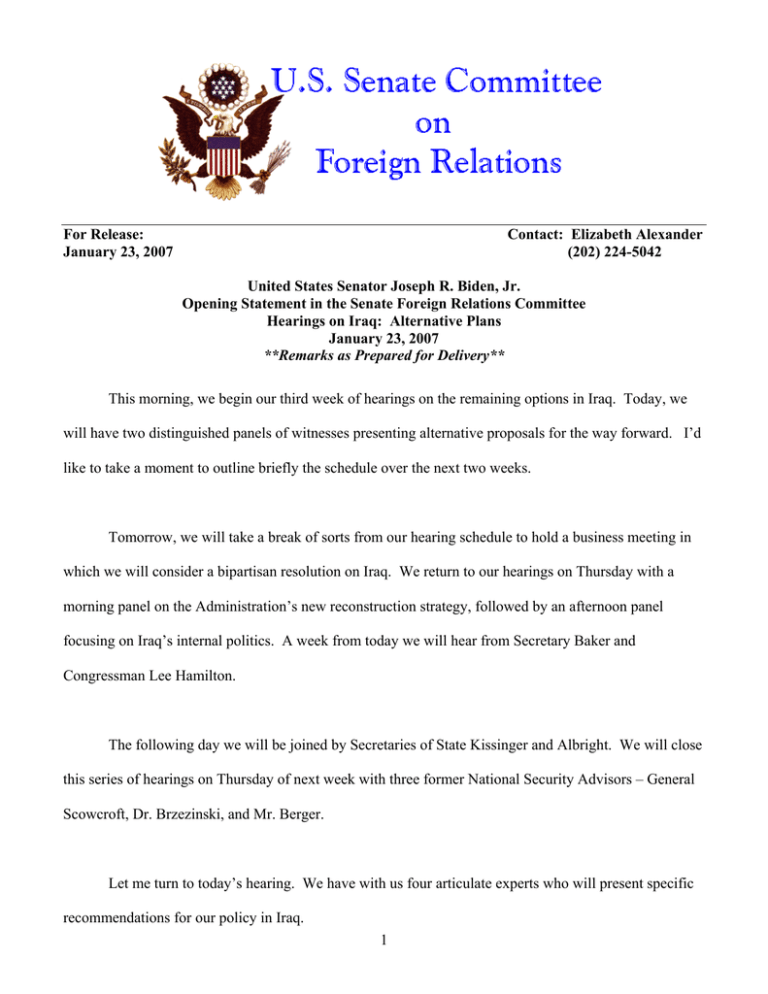
For Release: January 23, 2007 Contact: Elizabeth Alexander (202) 224-5042 United States Senator Joseph R. Biden, Jr. Opening Statement in the Senate Foreign Relations Committee Hearings on Iraq: Alternative Plans January 23, 2007 **Remarks as Prepared for Delivery** This morning, we begin our third week of hearings on the remaining options in Iraq. Today, we will have two distinguished panels of witnesses presenting alternative proposals for the way forward. I’d like to take a moment to outline briefly the schedule over the next two weeks. Tomorrow, we will take a break of sorts from our hearing schedule to hold a business meeting in which we will consider a bipartisan resolution on Iraq. We return to our hearings on Thursday with a morning panel on the Administration’s new reconstruction strategy, followed by an afternoon panel focusing on Iraq’s internal politics. A week from today we will hear from Secretary Baker and Congressman Lee Hamilton. The following day we will be joined by Secretaries of State Kissinger and Albright. We will close this series of hearings on Thursday of next week with three former National Security Advisors – General Scowcroft, Dr. Brzezinski, and Mr. Berger. Let me turn to today’s hearing. We have with us four articulate experts who will present specific recommendations for our policy in Iraq. 1 Les Gelb is the President Emeritus and Board Senior Fellow at the Council on Foreign Relations. He and I have put forth a plan for a political settlement in which the unity of Iraq is preserved by creating three or more regions as provided by the Iraqi Constitution. The plan would guarantee Iraqi Sunnis a fair share of oil revenues. It urges the creation of a contact group to support a political settlement among Iraqis. Finally, it calls for the redeployment of most U.S. troops over 18 months. Edward Luttwak is a Senior Advisor to the Center for Strategic and International Studies. He argues that “only with a United States disengagement can the Iraqis find their own equilibrium. 20,000 U.S. troops in desert bases suffice to deter foreign intrusions.” Robert Malley is the Director of the Middle East Program at the International Crisis Group. He advocates “a clean break in the way the United States deals with the Iraqi government and the region. The United States should seek to enlist broad international support for a new political compact among Iraqis; cease treating the Iraqi government as a privileged partner and start seeing it as a party to the sectarian war; and engage in real diplomacy with all Iraq’s neighbors, Iran and Syria included.” Larry Korb is a senior fellow at the Center for American Progress and a Senior Advisor to the Center for Defense Information. His plan calls for: “a diplomatic surge and a strategic redeployment of our military forces. U.S. troops would redeploy completely from Iraq in the next 18 months, remain in the region, and be increased in Afghanistan.” We look forward to the testimony. ### 2

